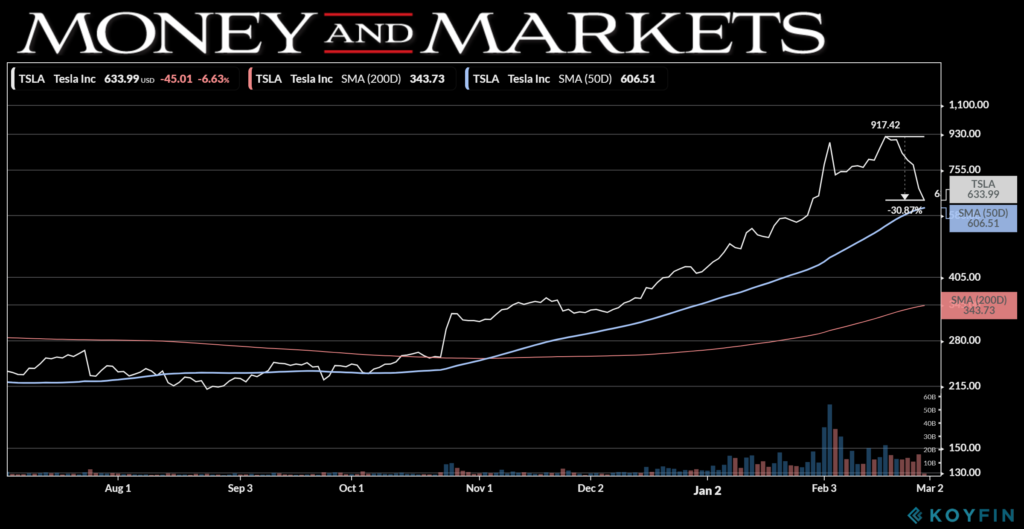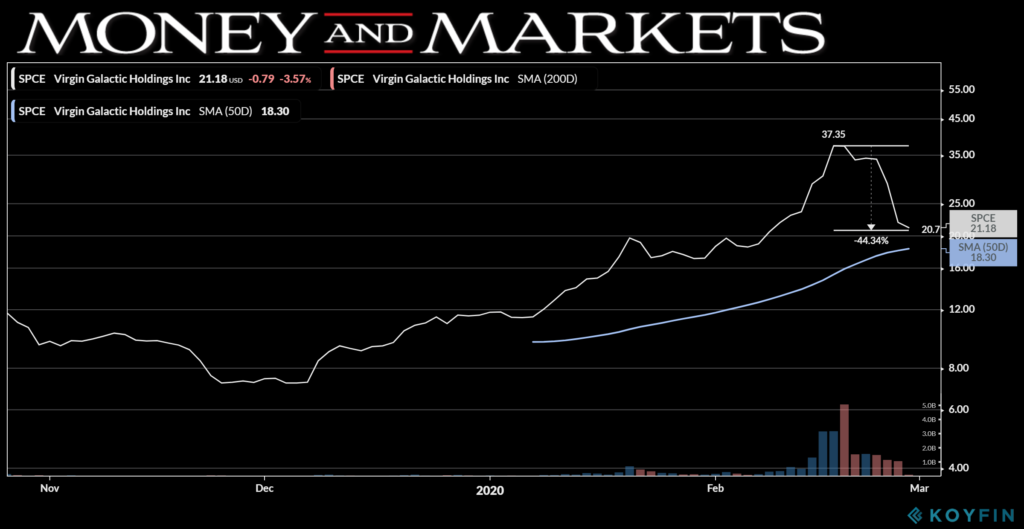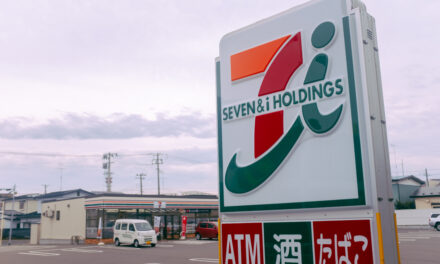Just when things were going so well for Tesla and CEO Elon Musk, something aside from the coronavirus happened to cause the electric automaker’s stock to crater.
Remember when Musk was filmed dancing (awkwardly) when Tesla Inc. (Nasdaq: TSLA) rolled the first vehicles off its Shanghai line in China.
If you don’t, here’s a glimpse:
Well, things have certainly changed since Tesla’s meteoric rise to more than $900 per share by mid-February.
Why Has Tesla Dropped Recently?
Thanks in part to the coronavirus outbreak, shares of the electric automaker have plummeted more than 30% — in just 11 days.

But much of Tesla’s February drop also coincides with the fact that electric vehicle registrations have fallen 46% in China — a large market for the company.
In January, only 3,563 Tesla vehicles were registered in China, compared to 6,613 in December, according to analysis from LMC Automotive.
The data indicates an overall slump in the electric car market as deliveries to dealers dropped 54% in January.
The decrease in registrations came before the coronavirus outbreak took hold of China and the global markets.
That underscores concerns the coronavirus will continue to disrupt the Chinese auto market.
Even with the recent dip in share price, Tesla is still up about 60% this year and trading at about $630 at 11 a.m. EST.
Tesla Isn’t Alone
Along with Tesla’s February drop, other more speculative stocks have seen a significant downturn in the last two weeks.
One of note is Virgin Galactic Holdings Inc. (NYSE: SPCE).
The spaceflight company jumped more than 142% in the first month of 2020 — a bigger jump than Tesla — fueled by news the company announced it was closer to providing commercial space flight.
Shares have now retreated more than 44% since reaching that high.

The large drop came after the company posted a $73 million loss in its first report as a public company.
Since then, Wall Street analysts have downgraded Virgin Atlantic stock significantly.
Morgan Stanley analysts downgraded it to “overweight” from “equal-weight” as they were “waiting for the fundamentals to catch up.” Credit Suisse moved Virgin Galactic to “neutral” from an “outperform,” saying “we find ourselves no longer able to recommend SPCE shares.”
Despite the recent drop, Virgin Galactic shares are still up 98% for the year and 212% in the last three months.
What’s Next?
The bottom line is Tesla has poured a lot of resources into the Chinese automotive market. They have bet big that sales in China will offset any decreases felt in other markets.
However, as the coronavirus continues to negatively impact sales and production, Tesla could continue to struggle.
The company recently reported production at its Shanghai factory will be delayed by more than a week as workers either stay home or work less due to fears of contracting the virus.
That translates to far less dancing for Musk, thankfully.




